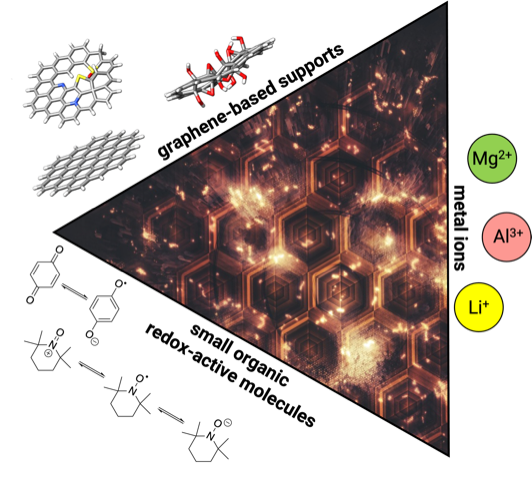Project 6: Machine learning for supported organic electrode materials
With the rising demand in alternative sustainable energy sources, diverse electroactive organic molecules arise as attractive electrode materials for rechargeable metal-ion batteries. However, current organic electrode materials generally suffer from low conductivity and poor battery life cycle due to their high solubility in conventional non-aqueous electrolytes. These issues can be simultaneously addressed by introducing conductive supports for these electroactive molecules.
In this project we aim to develop a facile screening and design protocol for the graphene-based nanocomposites as organic electrode materials. Vast chemical space of nanocomposites, arising from the range of possible electroactive organic molecules and a multitude of structural variations of the graphene-based supports, will be subject to automated exploration with machine learning techniques to alleviate the need in high-level quantum-chemical computations of the basis properties beyond the initial training set.
Developed approach for automated screening of the graphene-based nanocomposites will facilitate discovery and selection of new electrode materials for rechargeable batteries beyond the current trial-and-error approach. This framework can be further transferred to other applications of small molecule interactions with the graphene-based materials, e.g., in sensing and catalysis.

Team


Prof. Dr. Marcus Elstner
Principal Investigator (Karlsruhe Institute of Technology)
Phone: +49 721 60845705
More Information
T.T.-Prof. Dr. Pascal Friederich
Principal Investigator (Karlsruhe Institute of Technology)
Phone: +49 721 60844764
More Information
